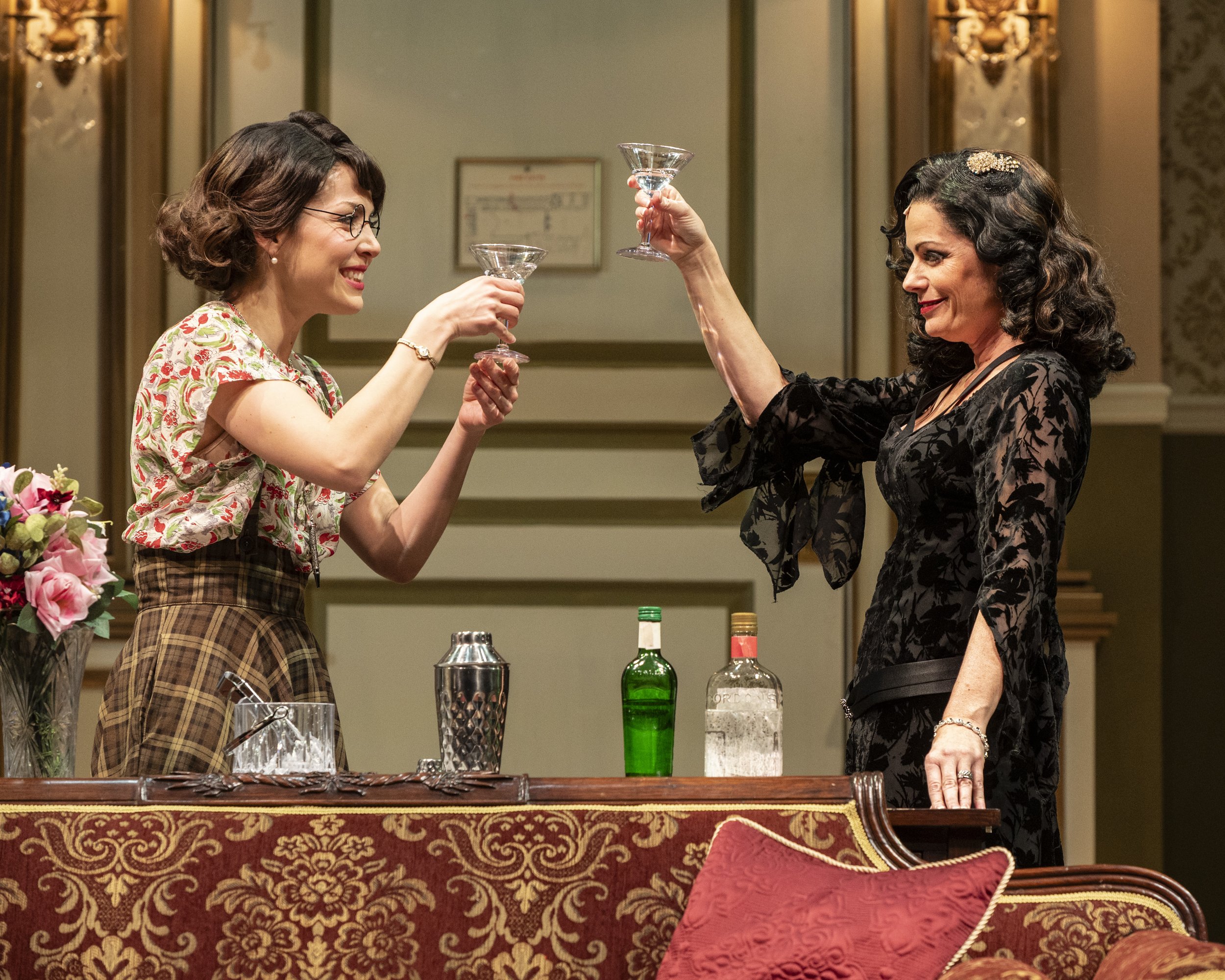With "Lend Me A Soprano" Ken Ludwig Raises the Pitch
Tony-winning playwright Ken Ludwig retools his beloved 1986 farce "Lend Me a Tenor" with a clever operatic gender-swap, now playing at Olney.
By Randy Shulman for Metro Weekly
For Ken Ludwig, it was almost an inevitability that he would one day take his hit farce Lend Me a Tenor, which had its debut in London’s West End in 1986 and on Broadway in 1989, and deploy a gender swap.
“Over the past few years, I’ve made a real effort to have more female leads in my plays,” says the Tony Award-winning playwright from his Northwest D.C. home one recent brisk, sunny morning.
“For example, when I wrote an adaptation of The Three Musketeers, I decided to give D’Artagnan a sister named Sabine who comes to Paris with him. She ends up being the heroine…because she’s a great swordsman. At first you think, ‘Oh, she’s the little sister tagging along,’ but she proves to be a real powerhouse.”
Ludwig says part of the motivation is to break the historical male-dominated model of traditional theater.
“[Female actors] have come to me and said, ‘Gee, I wish there were more standout parts for women,'” he says. “And I get it, I get it — for two thousand years it’s been a very male-centric art, this theater of ours.”
He points to Shakespeare’s Antony and Cleopatra as an example. “Cleopatra is an incredible role, but she’s the one really good female role among ten men,” he says.
The notion arose to reconfigure the format of Lend Me a Tenor, in which Max, a nebbishy producer’s assistant must frantically babysit an out-of-control, world-famous, womanizing Italian opera star, and get him to the Cleveland Grand Opera Company in time for the performance. Of course, things go dreadfully, hysterically wrong.
“I’ve taken the three major roles of the play and turned them into women,” says Ludwig of the revamped play which had its premiere at the Alley Theater in Texas and is currently enjoying a successful run at the Olney Theatre Center. “It was not a matter of simply, ‘Oh, I’ll just change their names.’ Women have different emotional ways of expressing themselves and different emotional feelings about things. So I rewrote the play from the ground up.”
The situation remains comedic, but the beats are different, says Ludwig. “Here’s a young person who’s in a dilemma and has to save the day because — I don’t want to give away any of the story — but there’s a twist in it,” he says.
Most of the sexual innuendos in the original play had to be adjusted so that they didn’t feel off-putting or, as Ludwig puts it, “scuzzy.” “I’ve rewritten those scenes again to make them full of laughter and joy, but not feel uncomfortable,” he says.
Ludwig, whose 34 plays include the book for the Tony-winning musical Crazy for You, Moon Over Buffalo, and updated adaptations of Agatha Christie’s Murder on the Orient Express (which is about to tour China) and Ben Hecht and Charles MacArthur’s Twentieth Century, still writes his plays the “old-fashioned” way, using pen and paper.
“I write by longhand,” he confesses. “I just like it. And what I like about it is it makes me feel very in touch with what I’m writing. It gives me a feeling that I’m really part of it.
“I use computers all the time,” he continues. “I write letters that way and essays, and this, that, and the other thing. But it all looks the same, all the letters are the same. It doesn’t feel creative in the same way when maybe the pen I’m using that day is different or the handwriting is a little more scribbled, or I’m making notes to myself in the margins.
“The piece of paper and the pen give me a sense of connectedness to the material. I don’t think you can write creative things on a typewriter. Of course, now I suppose everybody does it on computers, but I just can’t,” he laughs. “I don’t like it. I don’t want to.”


